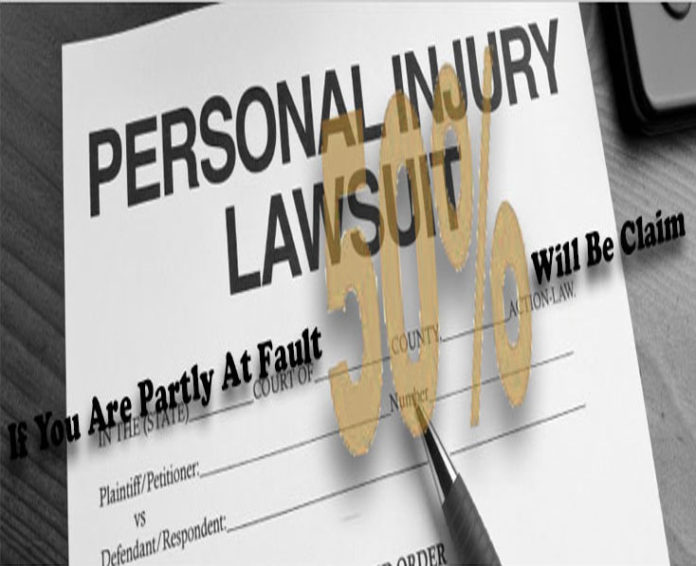If you’ve suffered a personal injury in an accident that you were partially responsible for, then you can make a claim for compensation and receive some money for your pain, suffering and losses. While you will not receive all the money you would receive if the other party was wholly to blame for the accident, you are still entitled to receive some of the money.
Contributory negligence and personal injury compensation claims
One of the key factors in deciding the value of a compensation claim is whether or not the claimant is guilty of contributory negligence. This means that although the defendant is partially responsible for the claimant’s injuries, the claimant also behaved in a negligent fashion and this contributed to the accident.
Your overall compensation settlement will be reduced according to how much your contributory negligence led to the accident. If you are deemed to be 20% responsible and the defendant is deemed to be 80% responsible, for example, then you will be awarded 80% of the amount of money you would otherwise receive.
This can be seen in motor vehicle accidents when it is not possible to determine which party was at fault, such as when drivers’ statements conflict with each other, when there are no independent witnesses or when some of the other evidence is contradictory or inconclusive. Claims adjustors and personal injury solicitors will analyse the facts to determine the way in which fault is split. People who suffer serious personal injuries in car accident compensation claims may also be deemed to have contributed to their injuries because of failings on their part, such as if they failed to wear a seatbelt, for instance. People who fail to check both ways when crossing the road are then hit by a car could be found to have contributed to their injuries in a pedestrian accident claim.
Accidents at work compensation claims can also see reductions due to contributory negligence. If an employee has been provided with personal protective equipment but fails to wear it, and they then come into contact with moving machinery, their employer will be deemed to have behaved negligently by failing to guard dangerous machine parts. However, the employee will be judged to have failed to take reasonable steps to protect their own wellbeing and could see their compensation reduced.
Failure to mitigate damages in personal injury compensation claims
If any damages could have been reasonably been prevented by a claimant, then they may see a reduction in their compensation claim if they are deemed not to have done so. This means that if a doctor tells a patient to exercise their neck muscles to recover from whiplash, but the patient fails to do so, this will impact their whiplash injury compensation claim if they do not recover from their injuries as quickly as they would be expected to.
If you were unable to continue working in a particular career path because of personal injuries sustained in an accident at work, then you will be expected to begin looking for alternative employment within a reasonable period of time. You may be seen to be somewhat responsible for lost wages if you do not look for suitable alternative employment. If you can return to work or begin working part-time, then the size of your compensation claim will be reduced if you fail to do so.
People cannot just allow their losses to increase and expect to be able to recover these losses in a compensation claim. However, this does not mean that the claimant needs to do anything unusual or unreasonable, or even spend any unnecessary money, in order to mitigate their losses.
Failure to mitigate damages can also be seen in car accident compensation claims and other personal injury compensation claims involving damage to items. If you buy a brand-new car instead of looking into repair costs, then you will not be able to claim for the cost of the new car. However, you should still be able to receive compensation for what the cost of repairs would have been.
Use solicitors to minimise personal injury compensation deductions
If you are partially responsible for the accident that caused you to sustain injuries, then your personal injury solicitors may be able to minimise the deductions you face. They will look at how to interpret the accident to reduce the level of responsibility you are deemed to have and will do all they can to ensure that failure to mitigate damages is avoided.
Provide as much evidence to your solicitors as possible and be completely honest with them. They will advise you on the best course of action to take and how to increase your compensation payout.



